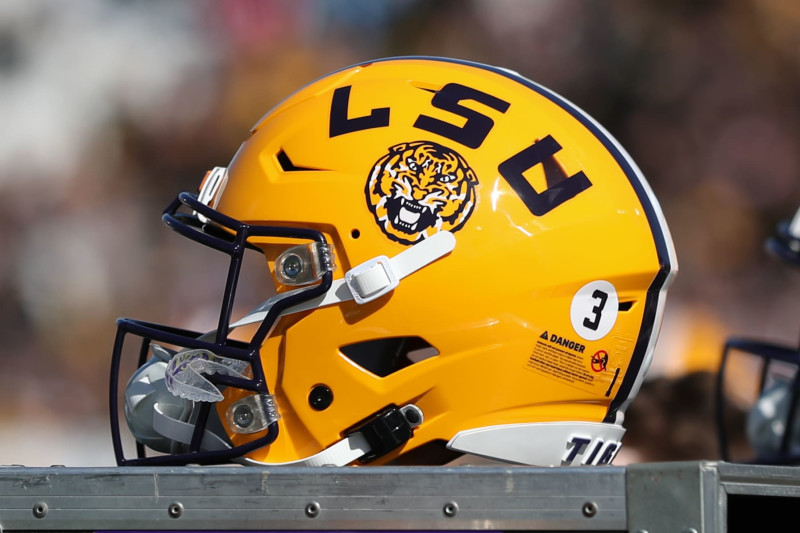In a troubling development for LSU football, 19-year-old cornerback Javien Toviano finds himself at the center of a legal and disciplinary storm following his arrest and subsequent suspension from all team activities. The incident, characterized by charges of video voyeurism, has cast a shadow over both Toviano’s promising athletic career and the reputation of the university’s athletic program.
According to reports from officials, including statements released by LSU Athletics, Toviano stands accused of surreptitiously recording a sexual encounter without the explicit consent of the other party involved. The gravity of such allegations cannot be overstated, especially within the context of collegiate athletics, where expectations of conduct and ethical behavior are paramount.
The arrest stems from findings detailed in an arrest report, indicating that Toviano allegedly used a concealed camera to capture intimate moments with the victim. The distressing discovery was made by the victim who reportedly found two videos on Toviano’s iPad, purportedly recorded during specific dates in early July of 2024.
Law enforcement authorities, responding to the severity of the allegations, executed a search warrant that further substantiated the claims, revealing three videos that reportedly featured Toviano and the identifiable victim. These findings have underscored the seriousness of the situation and precipitated swift action by both legal authorities and LSU’s athletic administration.
In response to the unfolding events, LSU Athletics promptly implemented a suspension of Toviano from all team-related activities. This decision aligns with established departmental policies aimed at maintaining integrity and upholding standards of conduct within the university’s athletic community. The suspension also reflects a commitment to due process and respect for the legal proceedings currently underway.
The repercussions of Toviano’s arrest are not limited to his immediate status within the football program; they also reverberate through the broader LSU community and beyond. Instances of alleged misconduct involving student-athletes can trigger significant repercussions, impacting not only the individuals directly involved but also the institution’s reputation and its relationship with stakeholders.
As the legal process unfolds, stakeholders within and outside of LSU will be closely monitoring developments and outcomes. The university’s response, which includes cooperation with law enforcement and adherence to procedural norms, will be critical in navigating the complexities of the case.
For Javien Toviano, once regarded as a promising talent within LSU football, the path forward remains uncertain. Beyond the immediate legal ramifications, there are profound implications for his collegiate career and personal life. The outcome of legal proceedings will ultimately determine the next steps for Toviano, while the university continues to uphold its commitment to transparency, accountability, and the well-being of its community.
The incident serves as a stark reminder of the responsibilities inherent in collegiate athletics and underscores the need for vigilance in upholding standards of ethical conduct and respect for personal boundaries. As the case unfolds, it prompts reflection on the broader issues of privacy, consent, and the intersection of personal conduct with professional responsibilities within the realm of college sports.
